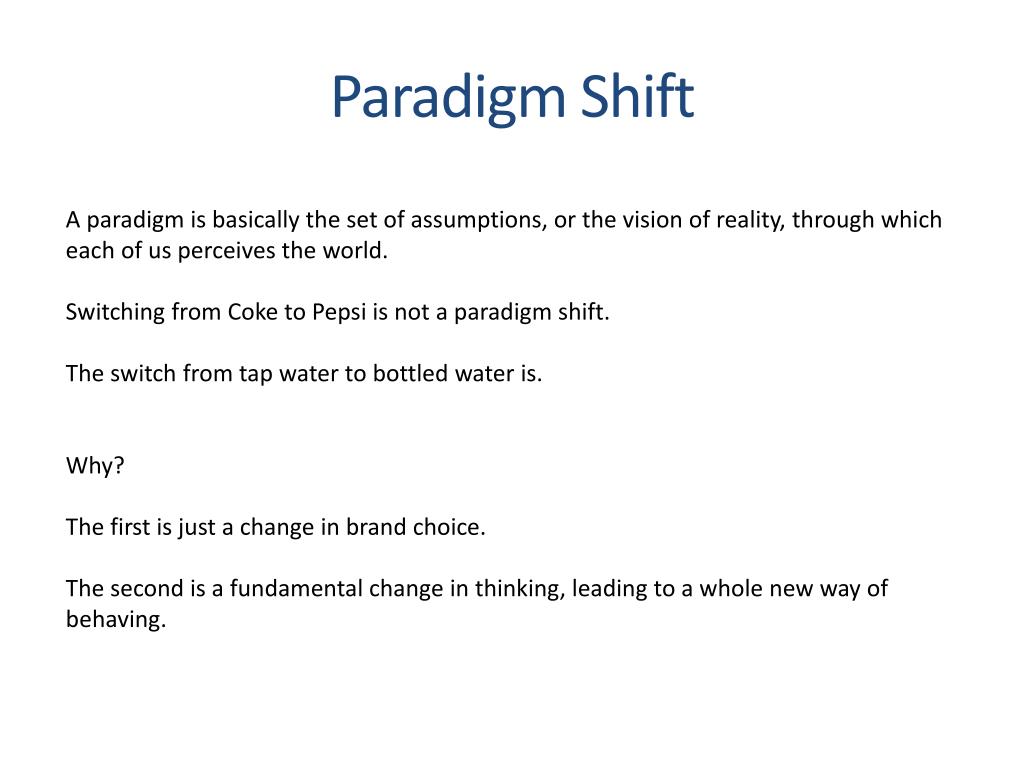

Concepts are beginning to be formed as a result of employee discussion and customer understanding. While such innovative people are still expected to be necessary, the communication technology of the early twenty-first century is allowing organizations to form ideas in a more fluid, collaborative manner. Invention was relegated to individual innovators and those with entrepreneurial talent. For the past couple centuries, managers have produced their own goals and ideas for their companies to follow, creating a top-down system of governance in which employees follow orders from the executives who work on innovation and concepts. Many business analysts see the arrival of Internet-based collaboration, social networking, and Web 2.0 applications as the beginning of an important business management paradigm shift. The crisis is resolved when a new model is created that explains current events so well it becomes accepted by the majority in the field, thereby establishing the next paradigm. Changes in international policy or economic situations can begin business paradigm crises, while scientific crises are most often caused by data that cannot fit into the current model. When this happens, people begin seeking other explanations to explain events more clearly and accurately. PARADIGM CRISISĪ paradigm shift is often begun by a paradigm crisis, which occurs when the current understanding of a situation is not adequate to explain events. Some of the predicted paradigm shifts for the business world include new management paradigms and revolutionary marketing techniques. As in science, many important paradigm shifts have occurred in the business world as economic principles have been more fully explored and organizational structures attempted. Another paradigm shift occurred at the beginning of the twentieth century, when Newtonian physics began to be replaced by Einstein's theories of relative space and time. It took scientists centuries to fully accept this physical principle which eventually revolutionized many scientific fields. One of the most often cited examples of a paradigm shift is Copernicus's theory that the Earth, along with other planets, revolved around the Sun. However, a true paradigm shift will be inevitable, a step in natural progress as knowledge in a particular field increases. There is often a strong movement against shifting paradigms, since many must restructure their businesses and lives to reflect the new understanding.

When a paradigm shift occurs, a new theory is proved and established, forcing all members under the old theory to change their perspective. A paradigm is an overarching theory or viewpoint that a society operates by, accepting it as a basis for understanding.


 0 kommentar(er)
0 kommentar(er)
